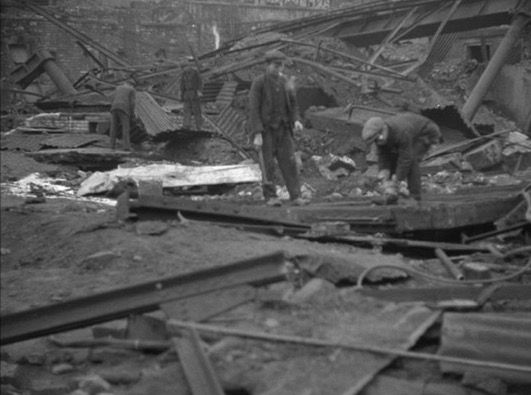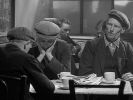Eye For Film >> Movies >> Today We Live (1937) Film Review
Today We Live
Reviewed by: Rebecca Naughten

Screening at Newcastle's AV Festival as part of its Meanwhile, what about Socialism? programme inspired by George Orwell's The Road To Wigan Pier, one half of Today We Live offers an almost literal representation of what the author had witnessed in Britain's northern industrial heartlands. The film entwines the re-enacted story of unemployed miners in the Rhondda Valley with that of a village in rural Gloucestershire - both communities rally to stick together by trying to raise funds for social centres where they can undertake different forms of self-improvement.
It is the Rhondda Valley strand that recalls Orwell's vivid account of dire poverty and unstable employment within mining communities. In its opening segment, the spryly directed film, which clips along at quite a pace, sets out a potted social history and economic context for the problems we will see, explaining that the Wall Street Crash in 1929 caused a depression in Britain that the country had only partially recovered from - and crucially that this recovery was subject to regional variation, with some areas of the country bearing the brunt of unemployment (nine out of ten men in the Welsh community shown were out of work).

In the time before the existence of the Welfare State there was little centralised assistance. Ruby Grierson and Ralph Bond's film was sponsored by the National Council for Social Service, a semi-public body created to foster self-help among the unemployed - they manage to introduce the organisation into the story in a naturalistic fashion via a radio broadcast listened to by both communities. What follows is a combination of re-enactment (the people onscreen are effectively playing themselves) and social commentary.
The film is lopsided insofar as the rural community does not appear to have the same problems and their participation in the scheme is more about social interaction than social deprivation. This is possibly a result of the documentary film movement's belief that social reform should be based in equality and fairness. In showing class differences - here most obviously manifested in how the Welsh men use the opportunity to learn skills such as carpentry and to keep themselves busy but the Gloucestershire women (and there is a strange gender division between the two stories) pursue leisure activities such as exercise and amateur dramatics - by default they highlight the things that the groups have in common, namely a strong sense of community, but also posit that everyone should be able to participate in social progress and reform.
Today We Live does not suggest that such schemes were the solution to unemployment and nor does it shy away from the limitations of what was on offer - one of the miners rails against taking any further training because "it's not paid work" and therefore "not real work". But the film takes a compassionate stance towards the unemployed, stating that without work or wages these men and their community have been "deprived of common rights of the citizen" and closes with the narrator expressing the view that only by working together "with unsparing energy" will the country solve the "fundamental problems that strike at the heart of our existence".
Reviewed on: 18 Feb 2016
















